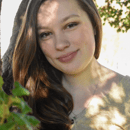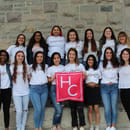The term intersectionality was originally coined by professor, lawyer, and activist Kimberlé Crenshaw in 1989. This term started as a way to describe the intersection of both racism and misogyny faced by Black women. This is because misogyny manifests itself differently for Black women than it does for white women due to anti-Black racism and stereotypes that are often used against them. The idea of intersectionality has continued to evolve and is now used to explain how issues such as disability, poverty, sexuality, and gender identity play a role in oppression. Learning about intersectionality is extremely important for understanding systemic issues, and it serves as the basis for being able to solve these issues without creating further marginalization of other groups. Here are just a few books that are great for learning about intersectionality.
- Freedom is a Constant Struggle
-
Published in 2015, Dr. Angela Davis’s Freedom is a Constant Struggle focuses on the relationships between Ferguson, Palestine, and the prison system. She explores the intersections of these topics through speeches, interviews, and essays. Davis’s analysis brings the idea of intersectionality to an international level, and the book is a great introduction to understanding the vastness of intersectionality. You can purchase the book here.
- How We Get Free: Black Feminism and the Combahee River Collective
-
How We Get Free consists of four interviews of women who have been vital to feminist and anti-racist movements over the past several decades. Starting with the foundation of the Combahee River Collective and ending with the creation of the Black Lives Matter movement, the book follows Black women making their own space in a white feminist movement that was not intended for them. How We Get Free is a great introduction to the history of Black feminism as well as looking at feminism through a Black, queer lens. You can purchase the book here.
- No Planet B: A Teen Vogue Guide to the Climate Crisis
-
We cannot find liberation for all if we cannot sustain the planet we live on. No Planet B is a collection of essays divided into three sections: reporting, activism, and intersectionality. The book provides a strong foundation for understanding the basis of climate change as well as the immediate and deadly impacts on indigenous communities and beyond. You can purchase the book here.
- Undivided Rights: Women of Color Organize for Reproductive Rights
-
While the fight for reproductive rights has come a long way, there are still many issues that need to be addressed. This includes issues such as economic inequality that prevents people from having access to family planning services, which disproportionately impact communities of color. Undivided Rights looks at the history of the reproductive rights movement from the perspective of people of color including Black, Indigenous, Asian, and Latine communities. This book shows how these communities often went much further than the mainstream reproductive rights movements and focused on inclusivity. You can purchase the book here.
- Disability Visibility: First Person Stories from the Twenty-First Century
-
People with disabilities are often left out of conversations about feminism and intersectionality despite the fact that they make up 15% of the world’s population. Understanding the struggles people with disabilities often face has become more urgent than ever as a result of the coronavirus pandemic. Disability Visibility offers a glimpse into the lives of those in the disabled community as well as what action needs to be taken in order to properly include them in these conversations. You can purchase the book here.
Our ethnicity, sexuality, economic status, and countless other factors all cause us to experience life differently. Oftentimes, these experiences cannot be fully understood by anyone outside of these communities or situations. Understanding the overlap between racism, classism, misogyny, homophobia, and transphobia is essential to be able to achieve liberation for everyone. Misogyny cannot be eradicated without destroying racism as well. This is why we need to constantly learn more about the intersectionality of these issues in order to understand how to best fix them.



